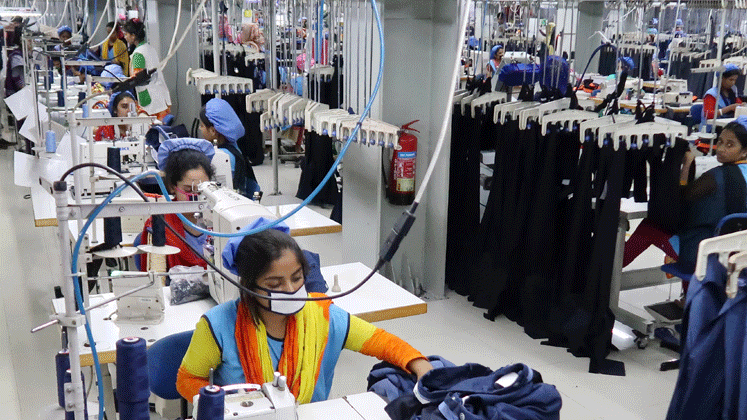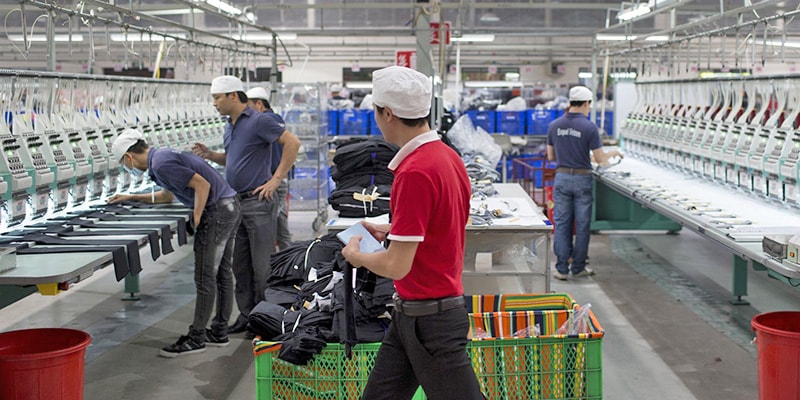
As coronavirus wreaks havoc on economies and industries, Vietnam declares stimulus package of US $ 1.16 billion to sustain industry production but Bangladesh is yet to.
Would coronavirus be the deciding factor in the race of supremacy between Bangladesh and Vietnam as far as apparel export is concerned?
China, for long, has been the leader in global apparel exports with Bangladesh and Vietnam following it at the subsequent spots respectively. However, the margin of difference between the two has been borderline.
In the see-saw battle in the last five months, however, Vietnam has been getting the better of Bangladesh! Bangladesh’s earnings from apparel exports in this period stood at US $ 12.7 billion while that of Vietnam was US $ 14.7 billion. But in the last calendar year, Bangladesh was marginally ahead of Vietnam in overall apparel export. From January to December 2019, Bangladesh’s apparel export earned US $ 422 million more than that of Vietnam, thereby enabling it to hold on to the second position.
The change in position in the last five months has now raised questions whether Bangladesh could lose its coveted spot of the second biggest apparel exporter globally to Vietnam in the days to come. Adding a new dimension to this is the outbreak of deadly coronavirus (COVID-19), which has changed the market dynamics significantly lately. As retailers the world over, and especially in Europe and the USA, are shutting down stores and consumer spending on clothing is taking a hit, speculations are rife as to who would have the last laugh – Bangladesh or Vietnam?
Bangladesh apparel industry is counting the cost of the outbreak already owing to supply chain disruption, weakening global demand, downsizing of existing orders and shipments being called off by buyers.
To contain the outbreak, countries have introduced aggressive measures including city lockdowns, business and factory shutdowns, transportation cut-offs, and mandatory home quarantines, hurting consumption drastically.

It’s not that the same does not apply for Vietnam.
However, if Bangladesh is yet to come up with any contingency plans in terms of financial support, Vietnam has announced a stimulus package of US $ 1.16 billion and Cambodia US $ 2.0 billion to sustain industry production, jobs and address economic impact of coronavirus.
“The Government of Bangladesh should also arrange a contingency fund, which could be used to pay to workers of the affected factories, and run their production; otherwise, the economy would sustain even bigger losses,” warned MA Rahim, Managing Director, Dulal Brothers Limited.
The former Vice President of Bangladesh Knitwear Manufacturers and Exporters Association (BKMEA), Mohammed Hatem too sounded equally worried of the industry’s prospects in want of Government support. “The industry would face existential crisis. The Government’s economic policymakers must pay heed to the crisis and announce plan before the industry collapses. We have sought concession on gas and electricity bills for one year and soft term loans from the Government under the emergency fund so that the industry can survive from the unfolding crisis. The funding support is also necessary to pay the workers during the upcoming Eid festival,” Hatem said.
Meanwhile, speaking to Apparel Resources, Khokon Chandra Kundu, Director Marketing, AKR Group, has also requested Government support to stave off the crisis. “If the Government gives some support to RMG sector like Dollar devaluation for RMG sector, special incentives and temporary loan, etc., then it can be possible to recover/regain, otherwise it would be very difficult to survive even for the fittest,” underlined Khokon.
The free trade deal between Vietnam and the European Union signed in June last year and passed in the EU parliament on 12 February 2020 could be another vital aspect in this competition between Bangladesh and Vietnam, more so as Bangladesh is under pressure from the EU to meet its standards in labour rights for enjoying Generalised System of Preferences facilities – a preferential system that provides tariff reduction for least developed countries.







